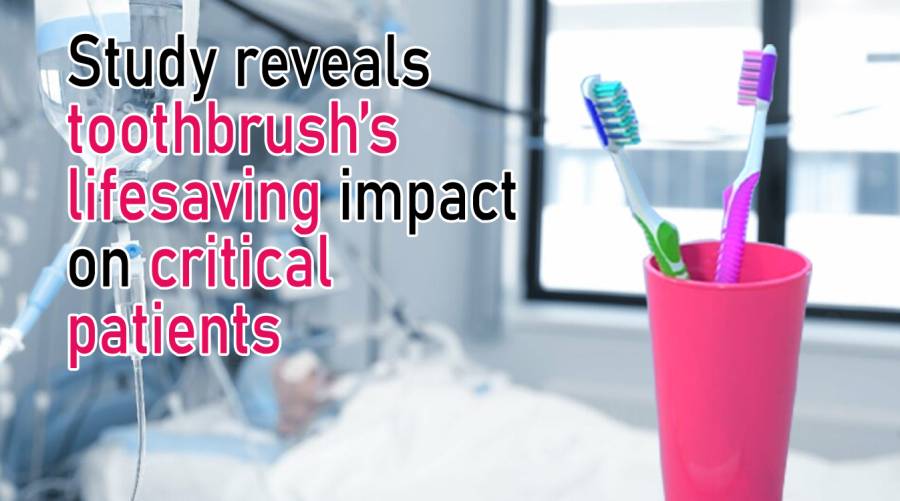
New evidence suggests that a person's toothbrush may play a crucial role in saving lives for those in hospital intensive care units (ICUs), according to a recent review.
Researchers, as reported in the journal JAMA Internal Medicine, have discovered a significant link between regular toothbrushing and improved outcomes in the ICU. The findings include lower mortality rates, shorter lengths of hospital stays, and reduced time spent on mechanical ventilators.
The protective effect of daily toothbrushing is linked to a decreased risk of developing pneumonia during a hospital stay.
Dr. Michael Klompas, a hospital epidemiologist and infectious disease physician at Brigham and Women’s Hospital in Boston, remarked on the striking implications of the study, stating, "The signal that we see here towards lower mortality is striking—it suggests that regular toothbrushing in the hospital may save lives." He emphasised the rarity of finding such a cost-effective and effective preventive measure in hospital settings.
The study, comprising results from 15 clinical trials involving over 2,700 patients, revealed that patients who underwent daily toothbrushing, especially those on mechanical ventilation, experienced lower pneumonia rates. Additionally, toothbrushing was associated with a decreased risk of mortality in the ICU and a shorter duration of intensive care.
The mechanism behind these benefits lies in reducing the bacteria in the mouth, which, when aspirated into a patient's airways, can cause lung infections leading to pneumonia. Particularly vulnerable individuals, such as frail patients or those with compromised immune systems, are at increased risk during their hospitalization.
Dr Klompas highlighted the simplicity and accessibility of this preventive measure, stating, "Instead of a new device or drug, our study indicates that something as simple as brushing teeth can make a big difference."
While most studies focused on ventilated ICU patients, the researchers believe that the positive effects of toothbrushing should extend to other hospitalized individuals.
The researchers urge the implementation of oral health routines, including toothbrushing, for all hospitalized patients.
Dr Klompas expressed the hope that the study will help catalyze policies and programmes to assure that hospitalized patients regularly brush their teeth. If patients cannot perform the task themselves, a caretaker should assist them, he suggested.
New evidence suggests that a person's toothbrush may play a crucial role in saving lives for those in hospital intensive care units (ICUs), according to a recent review.
Researchers, as reported in the journal JAMA Internal Medicine, have discovered a significant link between regular toothbrushing and improved outcomes in the ICU. The findings include lower mortality rates, shorter lengths of hospital stays, and reduced time spent on mechanical ventilators.
The protective effect of daily toothbrushing is linked to a decreased risk of developing pneumonia during a hospital stay.
Dr. Michael Klompas, a hospital epidemiologist and infectious disease physician at Brigham and Women’s Hospital in Boston, remarked on the striking implications of the study, stating, "The signal that we see here towards lower mortality is striking—it suggests that regular toothbrushing in the hospital may save lives." He emphasised the rarity of finding such a cost-effective and effective preventive measure in hospital settings.
The study, comprising results from 15 clinical trials involving over 2,700 patients, revealed that patients who underwent daily toothbrushing, especially those on mechanical ventilation, experienced lower pneumonia rates. Additionally, toothbrushing was associated with a decreased risk of mortality in the ICU and a shorter duration of intensive care.
The mechanism behind these benefits lies in reducing the bacteria in the mouth, which, when aspirated into a patient's airways, can cause lung infections leading to pneumonia. Particularly vulnerable individuals, such as frail patients or those with compromised immune systems, are at increased risk during their hospitalization.
Dr Klompas highlighted the simplicity and accessibility of this preventive measure, stating, "Instead of a new device or drug, our study indicates that something as simple as brushing teeth can make a big difference."
While most studies focused on ventilated ICU patients, the researchers believe that the positive effects of toothbrushing should extend to other hospitalized individuals.
The researchers urge the implementation of oral health routines, including toothbrushing, for all hospitalized patients.
Dr Klompas expressed the hope that the study will help catalyze policies and programmes to assure that hospitalized patients regularly brush their teeth. If patients cannot perform the task themselves, a caretaker should assist them, he suggested.


